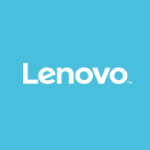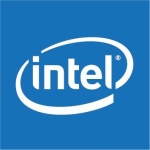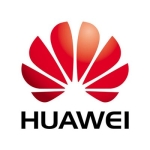What is our primary use case?
With HPE ProLiant, you can run a Windows operating system or a Linux OS based on Intel architecture. We also use several applications like iLO to manage the servers within the architecture of our serverless AMD processors.
Alternatively, you can use another monitoring solution like HP OneView to manage ProLiant Servers. It's a product for monitoring and managing the servers. In addition to monitoring software, ProLiant can be managed with a cloud-based solution. For example, HP's cloud-based InfoSight solution lets you monitor your server and storage, including ProLiant and Intel.
ProLiant can be mounted in different types of server racks, like a CD or tower. The tower solution of ProLiant is for a small site or office. With this type of tower server, you can add a kit as well. ProLiant has several servers: 150, 350, 380. And there is another ProLiant architecture that you can install in a Synergy and BladeSystem enclosure.
What is most valuable?
HPE's iLO server management software is a handy tool to install and deploy. OneView is also suitable for management, but you need a license for it. You can use OneView's monitoring features for free, but you need to pay for management capabilities. In the latest generation, Gen10, you have to add a license for iLO. In addition, generation 10 requires an ISO license to use iLO for management. And if you're working with Synergy, there is another new product like SimpliVity. SimpliVity has a helpful product that is based on ProLiant and another type of architecture similar to Apollo.
What needs improvement?
It would be great if HP could use a ProLiant Server to run HP-UX, the Unix build from HPE. Right now, HP-UX cannot run on the ProLiant architecture. So if HP made HP-UX compatible with ProLiant Servers, it would be pretty helpful. On the other hand, Linux is also replacing HP-UX, so maybe HP doesn't need to integrate this architecture into ProLiant.
If you look at ProLiant's trajectory, I think the next generation will be focused on adding memory. Currently, there is a gap in the memory technology, so I'm predicting that the internal disk for the next generation of ProLiant will be RAM only. I believe this high-speed disk will be available in the next generation. I think the disk will be integrated into the RAM architecture.
With the improved RAM architecture, the disk will be faster than the first-class disk because there are other protocols between memory and disk. If you have your disk, you look at the disk in terms of the motherboard. If you add to the processor, it would be faster. All disks in this architecture will be in the solution's memory.
For how long have I used the solution?
I've been working with ProLiant for almost 10 years. And two or three months ago, I implemented several ProLiant Servers running Windows. It was a very short project — a small solution for a small customer. The majority of my experience has been with HPE servers like ProLiant and Integrity. I've been working with HPE products for about 18 years, including HPE infrastructure, storage, and servers products. So I've been working with HPE since my first job after I graduated.
What do I think about the stability of the solution?
ProLiant Servers are stable because they have redundant elements built in.
What do I think about the scalability of the solution?
I would say ProLiant Servers are scalable, but it also depends on the architecture. You can scale up with Synergy. For example, you can add two servers into one node. So if it's part of the cluster, it also depends on the operating system that's running.
How are customer service and support?
When our customers deploy a ProLiant server, we're usually the ones providing support. We have a three-year contract for hardware and software support. The procedure for escalating to HP is pretty straightforward. You contact an HP call center then they verify your system handle or serial. If the server has an active contract, the response from the engineer depends on the conditions of the contract. Some contracts are six hours. That means they're going to solve your problem in six hours.
How was the initial setup?
Installing ProLiant is straightforward. There are different ways you can deploy. You can deploy it locally using the graphical user interface, or you also have the option to set it up using a shell. You only need some basic knowledge to install ProLiant. The procedure is pretty similar to setting up a PC or a laptop. ProLiant has an array of tools, so you can easily install the servers without any experience. The installer has a simple Windows-based GUI, so you just click through the wizard and provide some information to the servers.
You don't need a deep understanding of the architecture. If you have a fundamental knowledge of operating systems like Windows, you can handle this with no problem. Also, HP has a lot of information available online, including video tutorials on installing your ProLiant Servers. HP has several channels to provide information for customers and engineers.
The time needed to deploy depends on the scale and your environment. If you want to deploy just one ProLiant server, it takes maybe 30 minutes. If you're going to deploy a Synergy of BladeSystem with different modules inside, you might need to spend an entire workday on it. Maybe it takes a day to install all your servers or maybe less. But installing a single ProLiant rack-based server can be done in 30 minutes, including installing the operating system. Installing the operating system, updating your system, etc., will take maybe 30 or 40 minutes.
What other advice do I have?
10 out of 10. The latest generation is the best, but Generation 6 was very stable. It was a good one. Now Generation 10 is the best. I don't know why they took so long to upgrade this generation. Still, Generation 10 has improved a lot in memory and processing, so you can operate in an environment that supports ProLiant. That's why I think HP-UX will disappear because Linux can run this environment on the ProLiant architecture very well.
For example, the range of velocity and processor speed is four or five times greater than before. You can run every Linux environment, which can replace the Unix environment. You can run this Linux environment inside the ProLiant and get the same service as a Unix environment. That's why Linux and ProLiant run very well.
Which deployment model are you using for this solution?
On-premises
Disclosure: My company does not have a business relationship with this vendor other than being a customer.











